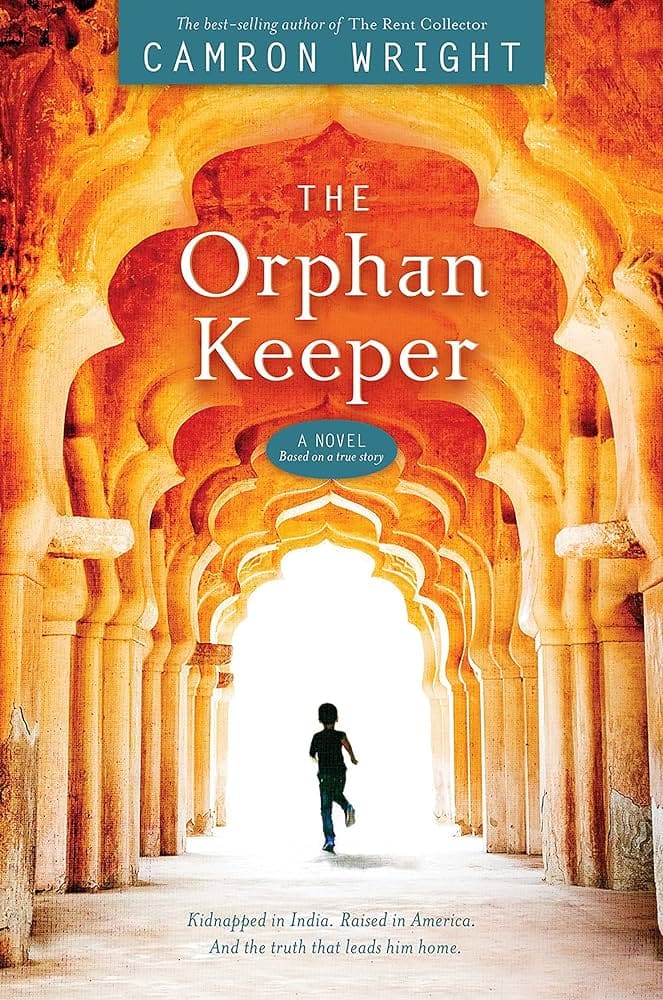
BG1 - October 2023 Review The Orphan Keeper by Camron Wright
In The Orphan Keeper, Chellamuthu, a scamp of an Indian boy, and his family, live in dire poverty. His father is “a man of few words, hasty hand and strong drink— often in reverse order”; his mother works dyeing fabric.
Running free in the village, 8-year-old Chellamuthu hangs out with older boys who encourage him to throw rocks, steal, and go where he’s been forbidden. His parents are at a loss to control him. At one point, his father burns the child’s feet to teach him a lesson, but the devilry continues.
When Chellamuthu is lured into an alley with the promise of a mango, a rare treat, he is grabbed and shoved into a van full of babies. Money changes hands, and he’s taken to a distant orphanage. Over and over, he claims to have a family, but the administrator tells him he has been sold by that very family.
The novel tells of Chellamuthu’s early life in India, his adoption into the U.S., his eventual awakening to his past, and the search to find his Indian family. Based on real life, documents and pictures at the back of the book attest to the underlying “truth” of the story.
The novel tells of Chellamuthu’s early life in India, his adoption into the U.S., his eventual awakening to his past, and the search to find his Indian family. Based on real life, documents and pictures at the back of the book attest to the underlying “truth” of the story.
Throughout, Indian food plays an important role as well, calling forth some of the best descriptions. Taj (new name given by his adoptive parents) muses about the orphanage food: “It had been constant, perhaps even repetitive, at least it stood up and talked back. It was pungent and flavourful, tangy and mysterious. It had opinions and it shared them, whether you agreed or not.”
By college, Taj has adjusted to his all-white surroundings and has become so Americanised that an invitation to a curry dinner is worrisome: “Firing squad by Indian food and nowhere to run.” But then “the rising steam reached out and latched onto his cheeks with all of its fingers. The scent that swirled around his neck had started rubbing his shoulders, reminding him that once, a very long time ago, they had met.”
That meal begins a reawakening to his Indian heritage, apparently entirely forgotten, and we follow his increasingly desperate search, against all odds, to find his mother.
Our Book group agreed that the novel paints a detailed picture of India far from the glamour of Bollywood and takes us deep into what it means to lose a family and be transplanted into a new culture. Many enjoyed the novel as it was an easy read but some of the plot holes were disappointing and too many coincidences were implausible.
Jay (Jung Min Lee)
